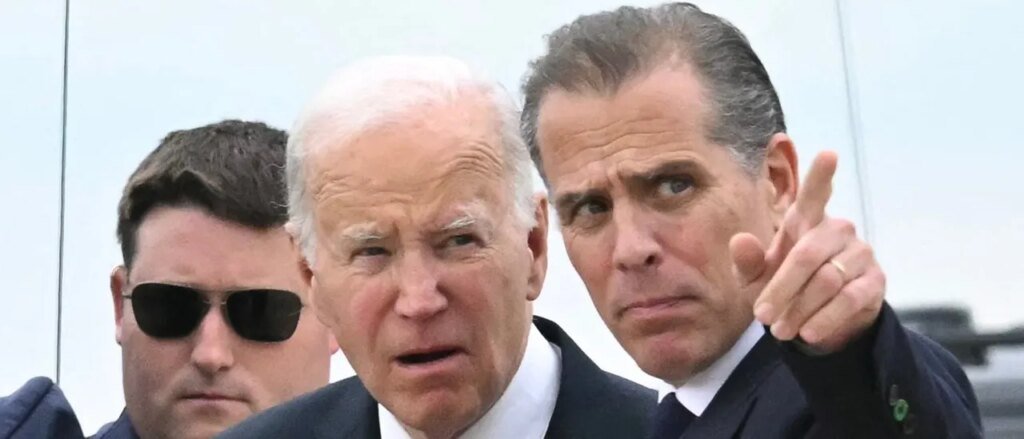Concerns Over Corporate Influence on Free Speech
For a while now, conservatives have raised alarms that some of the biggest corporations in America might be colluding with the government to suppress free speech and alienate a significant portion of the population. Those warnings were often brushed off as paranoia. We were told that the algorithms from Silicon Valley were impartial, and that Wall Street’s practices were just, well, business as usual. However, recent events suggest that these tech giants and major banks might be acknowledging, at least partially, that those conservative concerns had some merit.
A critical question arises for conservatives: Are these recent changes genuine reforms, or merely a way for companies to deflect responsibility? This question is pivotal and should steer any discussion about the missteps we may soon hear from those at the corporate helm.
Recent testimony in Congress has underscored experiences many have faced. Under President Biden’s administration, big tech has reportedly targeted conservative voices, minimizing their visibility and suppressing narratives that diverged from the government’s storyline. Simultaneously, financial institutions have effectively “unbanked” conservatives—closing accounts, freezing assets, or simply refusing service. This amounted to ideological bias dressed up as policies addressing “misinformation” or “risk management.”
The evidence is striking. The issue surrounding Hunter Biden’s laptop was initially labeled as “Russian disinformation,” which restricted coverage right before the 2020 election. Various conservative commentators, ranging from lawmakers to grassroots activists, found their accounts shadowbanned or removed altogether. Regardless of whether it was memes, satire, or faith-based expressions, content from conservative voices was often flagged as “hate speech.”
Meanwhile, banking institutions targeted individuals or organizations associated with conservative movements. Pro-life groups faced challenges in processing transactions. For example, a firearms-related business suddenly had its account terminated, and some who questioned COVID-19 mandates lost their banking privileges. The reasons given— “terms of service violations” or “brand risk”—were always vague, yet a clear pattern emerged.
This was no random occurrence. It revealed a coordinated effort where government pressure intertwined with corporate power to stifle dissent. President Biden even touted that social media platforms were actively managing misinformation. Major banks readily adopted ESG frameworks, affecting conservative sectors negatively.
Now, as political dynamics shift and Congress initiates investigations, these companies are presenting a new narrative. Executives from tech firms claim they’re revisiting their moderation policies, while bank CEOs insist they’ve learned from past missteps. Still, these adjustments feel reactionary rather than proactive. They didn’t stem from a newfound respect for the First Amendment, but rather because the political landscape has changed, public anger is palpable, and lawsuits are accumulating. It feels like self-preservation, not genuine belief.
Moreover, the so-called reforms remain superficial. The teams enforcing content moderation rules continue to maintain ideological uniformity. Banks are still embracing ESG frameworks detrimental to conservative enterprises. Fundamentally, not much has altered.
This isn’t the first instance of Big Tech trying to reframe its narrative. Their so-called “mortal sins” began years ago with symbolic gestures, like funding President Trump’s inauguration, which were simply attempts to sidestep political backlash. They worked diligently to cultivate an ideological base that aligned with the views of their liberal executives and activist staff, establishing entire teams to enforce those values.
Accountability is still lacking. No CEO has faced termination or recognized any wrongdoing. Many continue to defend their choices as “responsible corporate behavior.” These leaders are young, established, and seem to be banking on enduring the current Republican momentum through executive actions and oversight. Unless there’s a shift in leadership, conservatives can likely expect more of the same—just with enhanced public relations.
The conservative movement has to be wary of empty promises. Complacency could carry steep consequences. Allowing corporations to craft their own narratives without scrutiny could lead to a repeat cycle once Democrats regain control of Washington.
Congress needs to maintain diligent oversight. Public hearings, subpoenas, and legislation are essential to uncover how these abuses occurred and ensure they don’t reoccur. Requirements for transparency in content moderation, prohibitions against political bias in banking, and penalties for collusion between government and corporate entities should all be included in the solutions.
Moreover, conservatives should develop alternatives. Independent platforms, payment processors, and news organizations are demonstrating that there’s a demand for businesses that prioritize free speech. Competition might just be the best remedy to combat monopolistic tendencies.
Cultural pressure also plays a critical role. Companies are attuned to their brand image. When Big Tech and banks act discriminatorily, conservatives need to shine a light on those actions and unite people to withdraw their support. Transparency remains the best remedy.
This issue transcends mere social media presence or banking practices. It hinges on Americans’ ability to engage in public life without fearing corporate repercussions for their beliefs. The very essence of democracy is at stake when a limited number of business owners and bankers dictate which opinions are valued and whose lives are secure.
Big tech firms and large banks want to portray themselves as having moved on. Yet, until we see substantial reforms, authentic accountability, and a cessation of double standards, conservatives must proceed with skepticism. The same entities that silenced dissent during the Biden era cannot be trusted to self-regulate.
The conclusion is straightforward. Freedom isn’t merely about reclaiming what’s been taken away by corporations; it’s something that citizens must demand, protect, and never again be willing to compromise.







